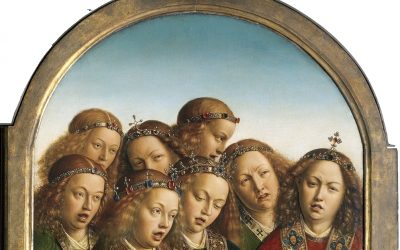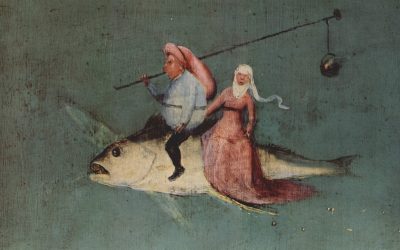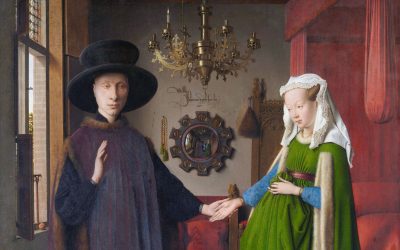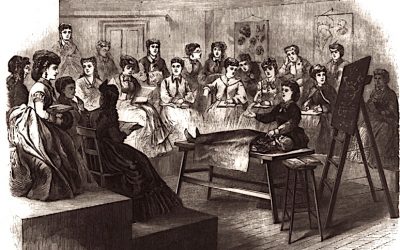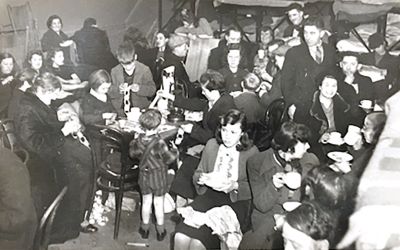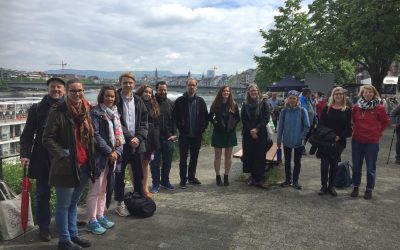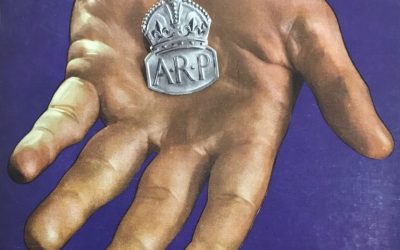The Historian
Published in London at QMUL
Featuring posts from staff and student historians
Sounding Huizinga: The Autumn of the Middle Ages Playlist
Musicologist Marianne C.E. Gillion compiled a playlist of late medieval and early modern music to accompany and inform the centenary (re)reading of Johan Huizinga’s The Autumn of the Middle Ages. In this blogpost, she discusses the musical landscape of these periods and asks what Huizinga’s work might have looked like if he incorporated information concerning the music of the time. This is the third post in our series celebrating the centenary of Huizinga’s work.
Huizinga on Witchcraft: ‘Waning vs. Autumn’
Over the course of a century, the many translations and editions of Johan Huizinga's Autumn of the Middle Ages have sprouted as many interpretations. Michael Bailey dissects and reflects on the different depictions of witchcraft across the multiple editions. This is the second post in our series celebrating the centenary of Huizinga’s work.
Celebrating the Centenary: Johan Huizinga’s Autumn of the Middle Ages
and
2019 marks the centenary of the publication of Johan Huizinga’s Autumn of the Middle Ages. Across the century since its publication, the book has inspired and challenged historians and literature scholars alike. Members of the School of History and the School of Languages, Linguistics and Film therefore invite interested readers to participate in a virtual reading group to (re)read this classic on its anniversary.
Hidden Figures: Women in the Archives of the Royal College of Physicians
Aiysha Sheth – a student on this year’s History Internship module – investigates the historical presence of women doctors in the Royal College of Physicians records, and discovers the first woman-of-colour fellow and other hidden female physicians. This task however proved to be a challenge. Why did creating a display on the history of women at the College prove to be such a difficult task? How hidden really is the history of women in medicine?
A Retrospective Time Capsule of Oxford House in World War Two
Many of us are familiar with the timeline of World War Two, but how much do we actually know about the experiences of living through such a catastrophic and momentous event? Delving into the personal documents held by Oxford House Community Centre provides a closer look at the effects of World War Two on a local scale, ultimately enabling the construction of a retrospective time capsule of the Bethnal Green community hub between 1939 and 1945. Talibah Miah, one of our first cohort of History Internship students this year, tells the story.
Report: QMUL-Basel Doctoral Exchange
We are fortunate in the School to have strong links with institutions across the world, and each year organise a number of exchanges for PGR students. Participants Heidi Russenberger, Tabea Richardson, Carmel Heeley, and Edward Caddy report on this year’s exchange with the University of Basel.
World War Two: From Hollywood to the Newham Archives
Hollywood has always presented World War Two as a story of British heroism. Yet in local archives a very different perspective of the British Homefront is being uncovered. At Newham Archives and Local Studies Library its Air Raid Precaution documents show the grim sacrifices and long hours of planning of one community. It is a far cry from Hollywood’s ideas. This post is one in a series from students who took the History Internship module in 2018/19, and was first submitted as part of the assessment for that module.
